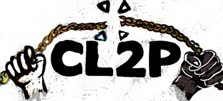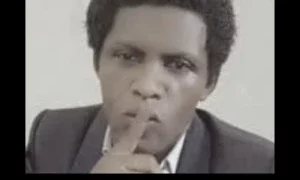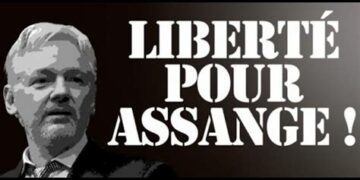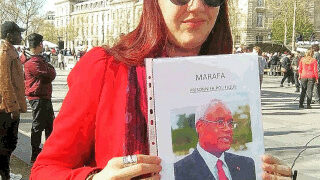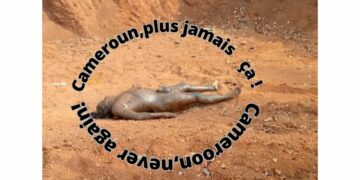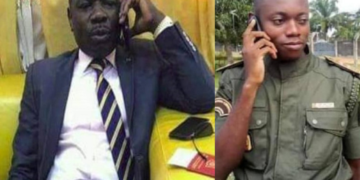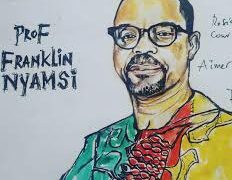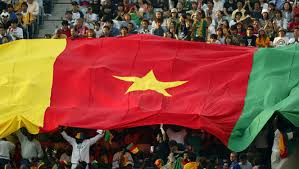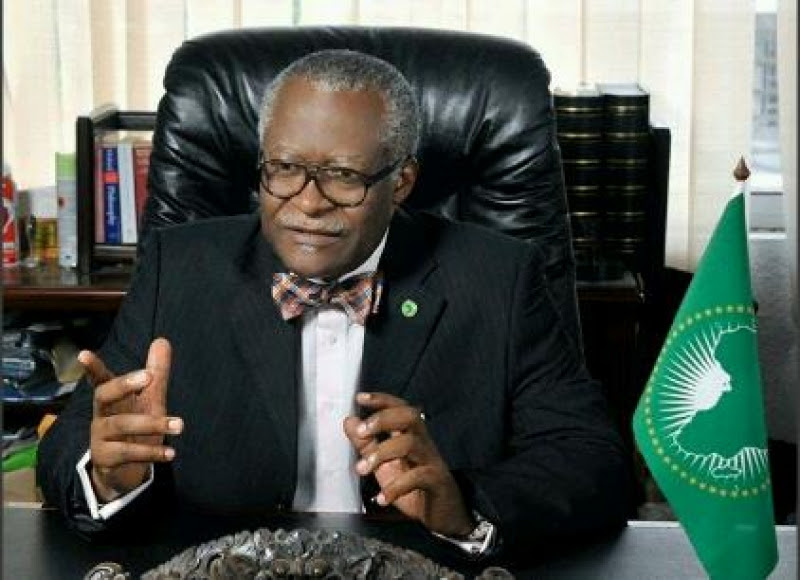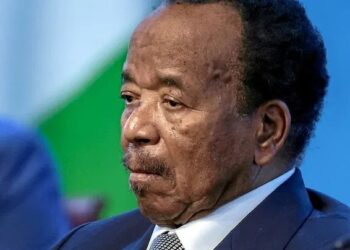Un pays sans Ancêtre (s): le problème anglophone et la question de l’unité nationale au Cameroun. Par Olivier Tchouaffe, PhD, Contributeur au CL2P
L’hymne national camerounais commence par la phrase «O Cameroun, berceau de nos ancêtres», mais il est intéressant de constater qu’il est difficile d’identifier un ancêtre ou des ancêtres réels au Cameroun. Or, aucun pays ne fonctionne correctement sans pratique institutionnelle d’enterrement et de commémoration.
Un pays en activité normale a besoin de son propre Panthéon et de ses Champs Elysées comme hommage aux Grecs en tant que véritables pères fondateurs de notre démocratie moderne. Après tout, l’inhumation et la commémoration sont essentielles pour la fonction psychique du pays, le partage communautaire, la refondation perpétuelle et le renouvellement du pays. C’est pourquoi l’historien français Patrick Boucheron affirme que la politique moderne n’est qu’une autre forme de religion laïque.
Ainsi, ce culte des ancêtres permet de distinguer pouvoir et domination. Tout d’abord, il n’y a pas de pouvoir sans sacrifice, la fonction du héros étant d’offrir son sacrifice en tant qu’acte fondateur du pays. Deuxièmement, le pouvoir exige toujours le consentement alors que la domination ne l’exige pas. Par conséquent, dans des démocraties, telles que les États-Unis, des jours fériés et réservés sont consacrés à ces rites commémoratifs qui manifestent l’engagement perpétuel pour les idéaux démocratiques: le Président Day, le week-end commémoratif (Mémorial Day), le Martin Luther King Day et le Lincoln Mémorial. Au Cameroun, ce jour est le 20 mai, fête nationale de l’unité Camerounaise. Cependant, il n’y a pas de corps sacrificiel unificateur au fondement de cette fête nationale.
Techniquement, le 20 mai au Cameroun célébrerait la journée Ahmadou Ahidjo et John Ngu Foncha en tant que pères de l’unité nationale camerounaise. Cependant, c’est là que les problèmes commencent. John Ngu Foncha est considéré avec scepticisme par les Camerounais Anglophones pour avoir brader le fédéralisme camerounais au profit d’une unité nationale qui en effet subordonne la partie anglophone du pays au gouvernement central de Yaoundé.
D’autre part, Ahmadou Ahidjo n’est pas considéré comme père de la nation au moins pour deux raisons essentielles. La première est que, pour établir son pouvoir, le président Paul Biya a dû tuer son père symbolique et empêcher son corps d’être enterré sur sa terre natale, craignant que la tombe d’Ahidjo ne se révèle être un mémorial célèbre par de nombreux Camerounais.
Deuxièmement, la question de l’inévitabilité historique est aussi centrale. Il y a beaucoup de héros historiques Camerounais qui pourraient être qualifiés de pères de la nation comme Rudolph Douala Manga Bell, Martin Paul Samba, Sultan Ibrahim N’joya, Felix Moumié, M’podol Ruben Um Nyobe, Ernest Ouandie, Osende Afana et Abel Kingue etc. Cependant, institutionnaliser l’un de ces héros va de facto dé-légitimiser la revendication historique de l’UNC-RDPC au pouvoir depuis l’indépendance du premier janvier 1960.
Pendant ce temps, sans aucun ancêtre institutionnel en vue de rallier le pays et réchauffer constamment l’unité nationale et l’esprit démocratique, les idéaux de l’unité nationale se sont transformés en politiques tribales et en coalitions d’intérêts concurrents basés sur des rigidités idéologiques. À cela se superpose une polarisation extrême fondée sur des tactiques brutales parce que la politique tribale est toujours un jeu à somme nulle où le gagnant prend tout. Ainsi donc la politique se transforme en survie existentielle, ce qu’Achille Mbembe appelle «nécropolitique» où la souveraineté repose sur la notion de qui doit vivre et qui devrait mourir.
Est-ce cela le Cameroun que nous voulons pour nos enfants?
Olivier Tchouaffe, PhD, Contributeur au CL2P
[spacer style="1"]
English version
A Country with no Forefathers: The Anglophone’s Problem and the National Unity Question in Cameroon. By Olivier Tchouaffe, PhD, contributor to the CL2P
The Cameroonian national anthem begins with the sentence «O Cameroon Cradle of our Forefathers». What is more interesting, however, is that it is really hard to identify an actual forefather or forefathers in Cameroon. Then, there is no properly functioning country without an institutional practice of burial and commemoration. A functioning country needs its own pantheon and Elysian Fields as homage to the Greeks as the founding father of our modern democracy. After all, burial and commemoration are essential for the country psychic function, communal sharing and perpetual re-foundation and renewal of the country. That is why The French historian, Patrick Boucheron, argues that modern politics are just another form of secular religion.
Thus, this act of ancestor worship makes the difference between power and domination. First, the idea that there is no power without sacrifice and the hero’s function is to offer his sacrifice as a foundational act of the country. Second, power always requires consent in ways that domination does not. Consequently, in democracies, such as the United States, there are days reserved from these re-foundational rituals and re-commitment to democratic ideals such as President Day, Memorial Weekend, Martin Luther King Day and the Lincoln Memorial. In Cameroon, that day is May 20th, national unity holiday. However, there is no sacrificial body over which to celebrate that national holiday.
Technically, may 20th should be Ahmadou Ahidjo and John Ngu Foncha’s Day being the fathers of Cameroonian national unity. However, that is where the problems start.
John Ngu Foncha is looked upon with skepticism by the Anglophone speaking Cameroonians for having traded Cameroonian federalism for a nominal unity that actually makes the Anglophone part of the country subservient to the central government of Yaounde.
Ahmadou Ahidjo, on the other hand, is not perceived as the father of the nation neither for two essential reasons. The first reason is that to establish his power, president Paul Biya had to kill his symbolic father and then prevent his body from being buried back home in fear that Ahidjo’s tomb will turn out to be a memorial.
Second, the question of historical inevitability. There are many Cameroonian historical heroes who qualify as fathers of the nation such as Rudolph Douala Manga Bell, Martin Paul Samba, Sultan Ibrahim N’joya, Felix Moumie, the M’podol Ruben Um Nyobe, Ernest Ouandie, Osende Afana, and Abel Kingue and so on. However, instutionalizing any of these heroes will de facto delegitimize the UNC-RDPC’s historical claim to power since the independence of Cameroon on January 1st, 1960.
Meanwhile, with no institutional forefather in sight to rally the country around and constantly reheat national unity and democratic ideals, national unity ideals have broken down into tribal politics and coalition of competing interests based on ideological rigidities and extreme polarization based on brutal tactics because tribal politics are always based on zero sum games where the winner takes all. Politics turn into existential survival and often what Achille Mbembe calls «necropolitics» where sovereignty is based on the notion of who should live and who should die. It is that the kind of Cameroon we want for our children?
Olivier Tchouaffe, PhD, contributor to the CL2P
